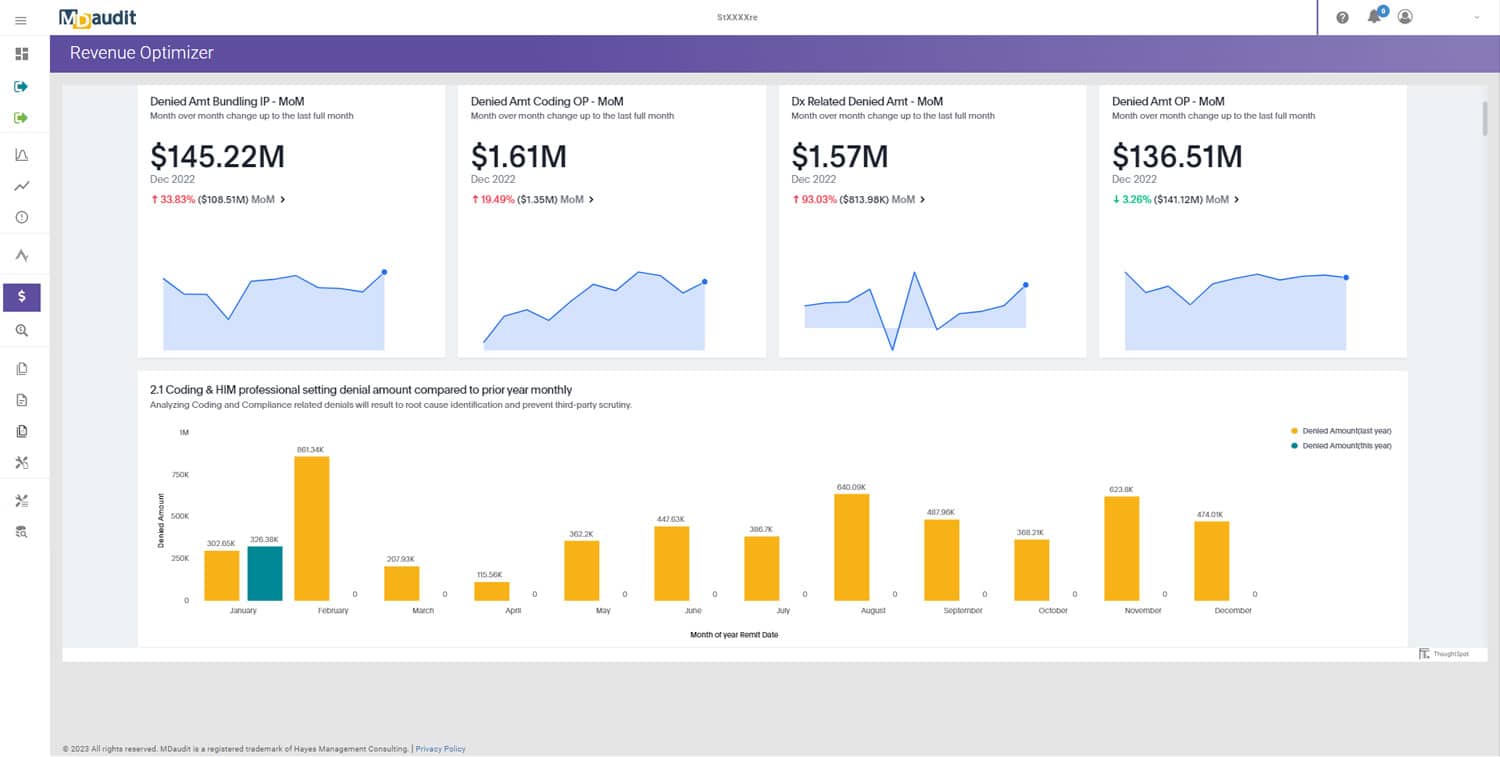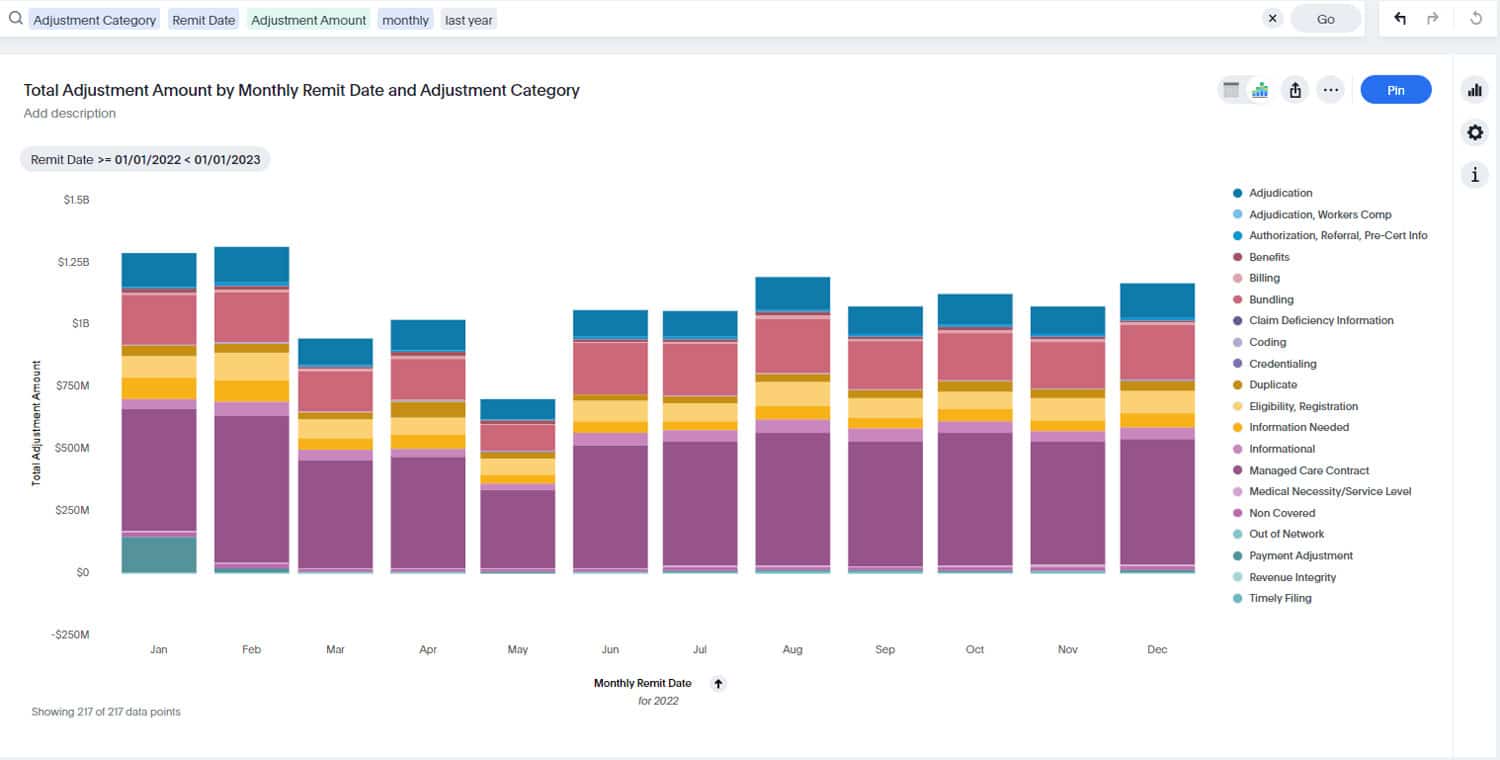In healthcare, revenue integrity teams are vital to ensuring that organizations receive accurate, timely, and full reimbursement for the services they provide. Their work is essential to maintaining a smooth and compliant revenue cycle, preventing revenue leakage, and optimizing revenue.
Revenue Integrity: Key Contributions to Revenue Cycle Management
Revenue integrity is essential to the financial stability and success of healthcare organizations. Their contributions are many, but here are the top three:
-
Preventing Revenue Leakage
One of the core responsibilities of revenue integrity teams is to identify and prevent revenue leakage. They monitor billing processes, claims, and reimbursement patterns to catch underpayments or missed billing opportunities, such as unbilled services or incorrect codes. Their efforts ensure that the organization receives full payment for the services provided.
-
- Increased Revenue Capture: Revenue integrity professionals routinely conduct audits to ensure all services rendered to patients are accurately captured and billed. Any missed charges or discrepancies are corrected to maximize revenue.
-
- Data Monitoring: By continuously analyzing financial data, these teams can pinpoint trends that indicate potential losses or opportunities for optimization.
-
Ensuring Compliance with Regulations
Revenue integrity teams serve as the compliance gatekeepers within the revenue cycle. They work to ensure that all billing activities adhere to federal and state regulations as well as payer-specific rules. This includes:
-
- Improved Compliance: Regular internal audits help revenue integrity teams catch potential compliance risks early, reducing the likelihood of external audits or fines. Improved compliance ultimately leads to transparency and accountability, which upholds a healthcare organization’s reputation and commitment to quality patient care.
-
- Coding Accuracy: Revenue Integrity teams collaborate with coding and billing departments to ensure that services are coded correctly, minimizing the risk of claim denials due to incorrect or incomplete information.
-
Optimizing Reimbursement Processes
Revenue integrity teams actively work to improve the reimbursement process, ensuring that the organization gets paid quickly and efficiently. Their contributions include:
- Denial Management Analysis: They analyze claim denials, identify trends, and implement corrective measures to reduce future denials, speeding up payment timelines and enhancing cash flow.
- Payer Contract Optimization: Revenue integrity teams work closely with contract management and payer relations to review and negotiate payer contracts, ensuring that reimbursement rates are fair and beneficial for the organization.
Challenges Faced by Revenue Integrity Teams
While revenue integrity teams make critical contributions to healthcare organizations, they also face significant challenges that require a holistic solution.
-
Navigating Complex and Changing Regulations
The constantly shifting healthcare regulatory landscape presents one of the biggest challenges for revenue integrity teams. Keeping up with constantly changing regulations and payer-specific rules can be overwhelming. Failure to comply with these regulations can lead to claim rejections or financial penalties, adding to the team’s workload.
-
- Interpreting Ambiguities: Regulations are not always straightforward, and revenue integrity professionals must interpret complex guidelines, often under tight timelines, to ensure accurate implementation.
-
Managing Interdepartmental Collaboration
Effective revenue integrity relies on seamless collaboration between various departments. However, communication gaps or inconsistent data across departments can create bottlenecks and slow down the resolution of issues.
-
- Communication Gaps: Inconsistent communication or lack of clarity between departments can result in misaligned goals, leading to errors in claims or missed revenue opportunities.
-
- Siloed Data: Different departments often use separate systems and databases, making it difficult for revenue integrity teams to access the information needed for analysis and decision-making.
-
Dealing with Denials and Underpayments
Despite their best efforts, claim denials and underpayments still occur. Addressing these issues is time-consuming and often requires significant manual intervention when technology is not readily available.
-
- Denial Resolution: Revenue integrity teams must dive into the details of denied claims, determine the root cause, and take corrective action, which can be labor-intensive and delay revenue collection.
-
- Appealing Underpayments: Teams frequently need to dispute underpayments from payers, providing documentation to support their case, which can be a lengthy, costly, and drawn-out process.
The Vital Role of Revenue Integrity Teams
Revenue integrity teams are the cornerstone of a financially healthy healthcare organization. Their ability to prevent revenue leakage, ensure compliance, and optimize reimbursement processes directly impacts the organization’s bottom line. Through their work, they protect the organization from financial risks and contribute to smoother revenue cycle management.
A day in the life of a revenue integrity professional is one of constant vigilance, collaboration, and problem-solving. Their challenges can be greatly improved with the right technology that brings together billing compliance, coding/HIM, and revenue integrity teams for a holistic and healthy revenue cycle ecosystem.
Learn how MDaudit’s Revenue Integrity Suite can support the success of your revenue integrity teams.





